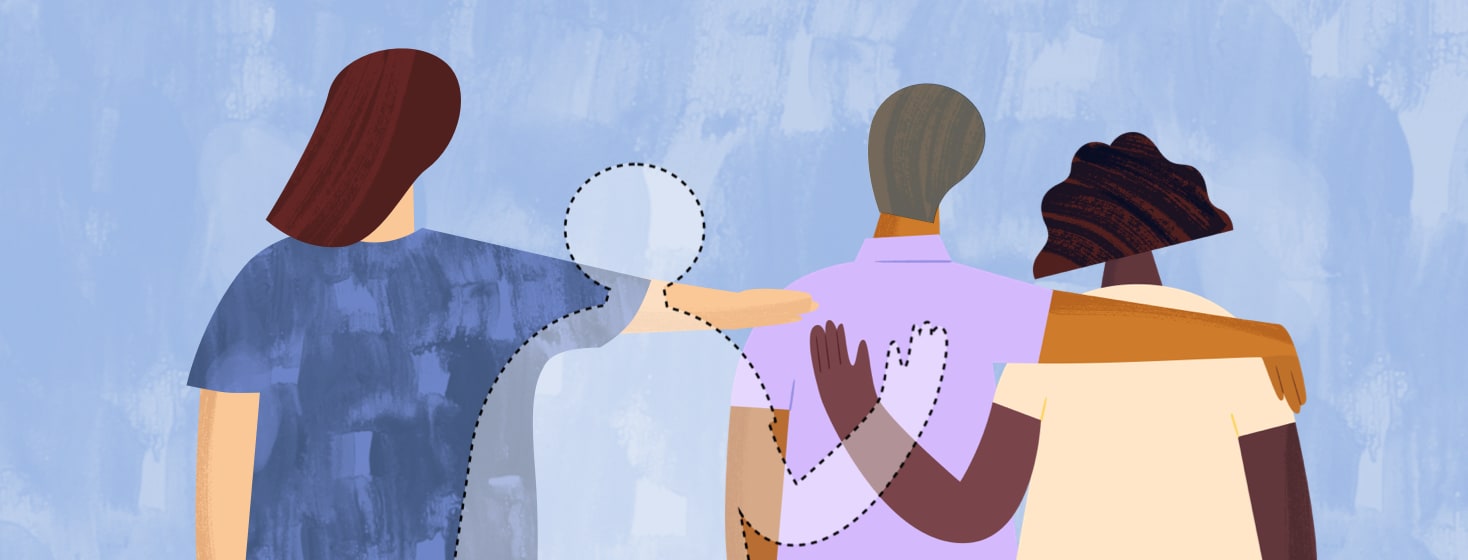Friendships During Cancer
As we drive to Chicago to celebrate our 50th wedding anniversary, we remember our lives together during the past 50 years. After my husband Dan’s prostate cancer, bladder cancer, and host of other medical concerns, we weren’t even sure we’d be celebrating 50 years. We’re very grateful that we are.
After my husband's cancer diagnosis...
Friendships that deepened
We talked about the friendships we made, and lost, over time. Seems that since he was treated for metastatic prostate cancer in 2008, friends have come and gone even more frequently. We’re meeting some of our longtime Chicago friends this weekend, as of my writing this.
These friends are among those who supported us, helped us, and prayed for us during Dan’s cancer. These are the friends who called often to see how Dan was doing and if there was anything they could do to help. Conversations were seldom wordy or detailed, just a quick hello, checking in, “what do you need,” “I’m here for you.”
These are the friends who sent restaurant gift cards, baskets of fruit, and frequent get-well cards. It’s amazing how Dan’s spirits were uplifted when he received get-well cards and little notes, some serious and some funny, from people who care. It’s not so much the cards but the reinforcement that these are the people who are interested, who love us, who are available, who want the best for us. These are our people.
Friendships that ended
Then there are the friendships which ended when Dan was diagnosed with cancer. We were surprised by that, and it’s hard to imagine why. No one ever communicated a reason for disappearing. But we have some ideas.
We realized that it’s hard to not react when you see a friend who is going through chemo. Hair is gone, the skin is tinged yellow, energy is depleted, and there may be a significant weight loss or weight gain. It's hard to see someone you care about going through all that. Many people are afraid they can’t hide their shock.
We’ve been told by some people that they’re afraid of “catching” cancer. I was told once by a nurse that I couldn’t stay with Dan during his chemo treatments because I might catch cancer from any of the patients receiving infusions. Hard to believe a nurse would say that, but apparently it’s a thought that’s somewhat more widespread than we could imagine.
Why we lost friendships
For some people, “cancer” is a word that fills them with immediate anxiety. They fear the disease, fear treatments, fear hospitals, and don't want to hear anything about what the cancer patient may be going through. They may stay away due to survivor’s guilt because of their own good health.
And then there’s helplessness: friends might feel inadequate to help or comfort, so they simply opt to stay away. They don’t know what to say. They don’t know what to do. I’m sure there are a host of other reasons for lost friendships during cancer; these are just some we’ve experienced.
Featured Forum
View all responsesThe importance of being there
So where does that leave us? First of all, we appreciated the friends who remained true, and continue to be thankful for their presence in our lives. We accepted their help, weren’t afraid to ask for help when we needed it, and enjoyed their company.
The friendships we lost taught us how to be a friend when someone we care about is diagnosed. Above all: be there, in whatever form that may take. Offer help or just do what you can to help even when it’s not asked. Many, many people don’t want to ask for help or impose, so we take the initiative.
Listen: be available to just listen any time of day, anywhere, and make sure your friend knows you’re always available. If you don’t know what to say, don’t disappear - admit that - “I don’t know what to say.”
Show empathy
Be prepared for what your visits may be like. The cancer may be very evident in your friend’s appearance, but don’t show shock or dismay. Do some research so you know what your friend may be going through, but don’t offer solutions or recommendations; just come prepared with a little knowledge.
Show empathy by not talking about your problems but by focusing on his. Send cards, have regular check-in calls, talk about things other than cancer, but don’t ignore its presence, either. Be flexible when you visit; you never know whether your friend will want to talk, go out, or just rest in silence but with your company.
Yes, we’ve lost friends because of cancer. But we’ve been able to recognize and appreciate our true friends. We’ve also gained a whole community of people, such as this one, who share their experiences in the hope of helping others. Cancer doesn’t need to be a disease of solitude.

Join the conversation